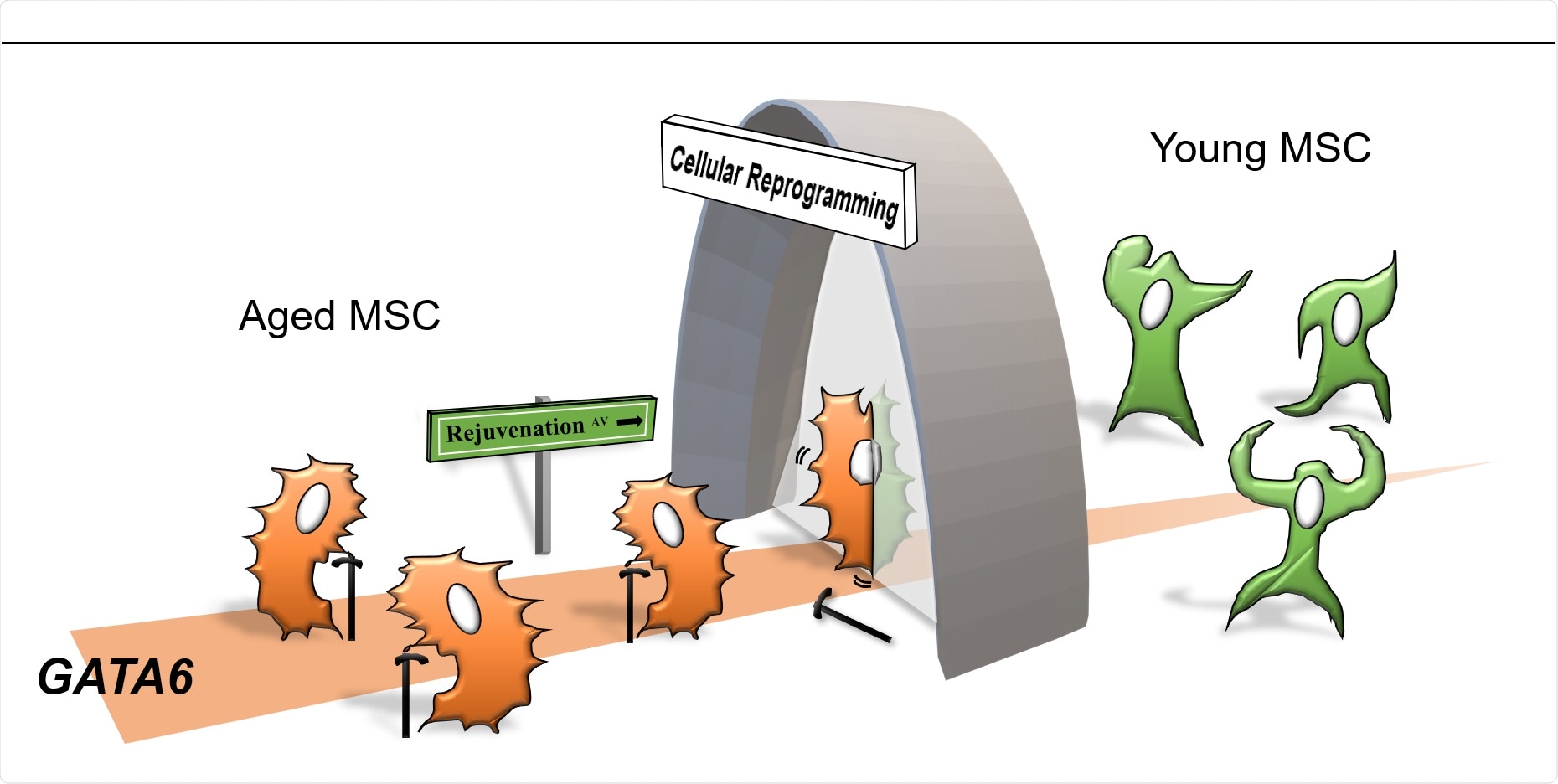In a new study, published today in the journal Stem Cells, researchers reveal how they have identified the gene responsible for aging. The team of scientists from the University of Wisconsin-Madison have figured out the molecular mechanisms involved in reversing cellular aging that is associated with a decline in the functioning and activities of the mesenchymal stem/stromal cells (MSCs).

Image Credit: AlphaMed Press
This breakthrough in understanding the mechanisms involved in such cellular reprogramming is vital to developing our knowledge of MSC aging and its related diseases, as well as helping to establish new pharmacological strategies to slow down or reverse the aging process.
Establishing the pathways involved in MSC aging and rejuvenation
The US team followed on from the findings of previous research which established the route to MSC rejuvenation via cellular reprogramming. The scientists developed a young and old cell model which were genetically identical for the study, the aims of which were to “provide insight into how reprogrammed MSCs are regulated molecularly to ameliorate the cellular hallmarks of aging,” lead investigator, Wan-Ju Li, Ph.D., a faculty member in the Department of Orthopedics and Rehabilitation and the Department of Biomedical Engineering, explains.
MSCs were derived from human synovial fluid (SF-MSCs) which is found in the fluid surrounding the elbow, knee, and joints. The team then reprogrammed these MSCs into induced pluripotent stem cells (iPSCs), and then reverted them into MSCs. This process effectively rejuvenated the MSCS, and when comparing them with the non-rejuvenated parental MSCs, the researchers observed that aging-related activities were significantly reduced in the reprogrammed MSCs. This reduction of aging-related activities reflected a reversal of cell aging in the reprogrammed MSCs.
Next, the researchers analyzed the cells to establish whether any changes in global gene expression had occurred as a result of reprogramming. The results showed that the protein GATA6, which is known to be responsible for the development of the gut, heart, and lungs, was expressed less in the reprogrammed cells in comparison to the control cells. The impact of this repression of GATA6 expression, the researchers observed, was associated with an increase in activity of the sonic hedgehog (SHH) protein, a protein that plays a vital role in embryonic development.
Repression of GATA6 expression was also found to induce the activity of the FOXP1 protein, which is essential for brain, heart, and lung development. "Thus, we identified the GATA6/SHH/FOXP1 pathway as a key mechanism that regulates MSC aging and rejuvenation," said Dr. Li.
Revolutionizing regenerative medicine
What was achieved by the team at the University of Wisconsin-Madison is significant in developing our knowledge of the processes involved in the premature aging of cells. The identification of the GATA6/SHH/FOXP1 pathway is an exciting development in this field of research.
To further explore their findings, the team designed an analysis to determine which of the four reprogramming genes used to derive iPSCs, known as Yamanaka transcription factors, were responsible for repressing GATA6 in the iPSCs.
To do this, the scientists measured the expression of GATA6 in response to the knockdown of each transcription factor. The results showed that only OCT4 and KLF4 were involved in regulating GATA6 activity, a finding that is supported by previous studies.
Dr. Li summarized the significance of her team’s findings, “we were able to demonstrate that SF-MSCs undergo substantial changes in properties and functions as a result of cellular reprogramming. These changes in iPSC-MSCs collectively indicate the amelioration of cell aging. Most significantly, we were able to identify the GATA6/SHH/FOXP1 signaling pathway as an underlying mechanism that controls cell aging-related activities.”
The team’s findings will be important in developing our understanding of how MSC aging occurs and how it is significant in disease and regenerative medicine.